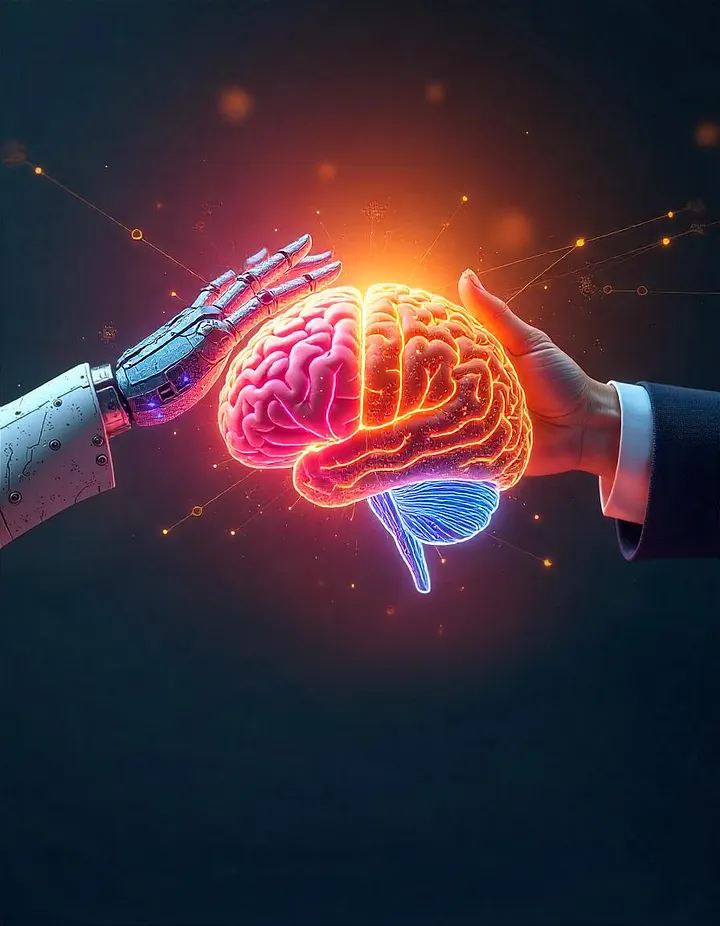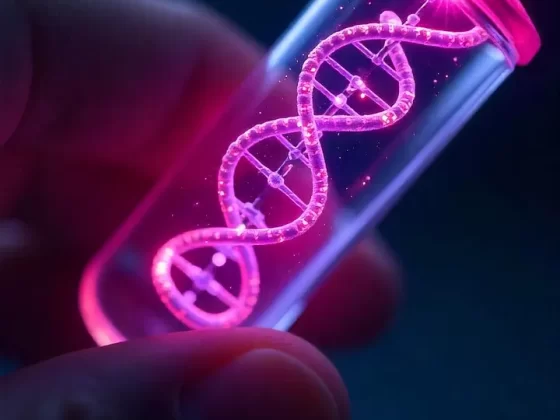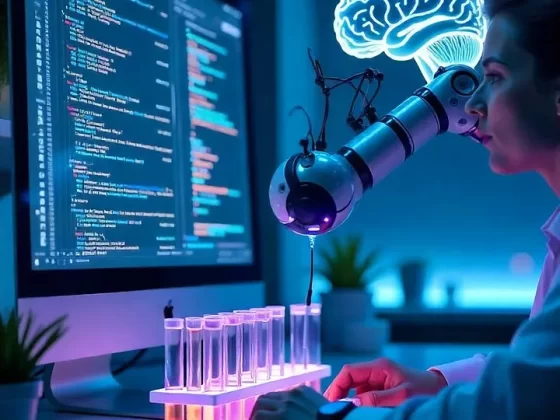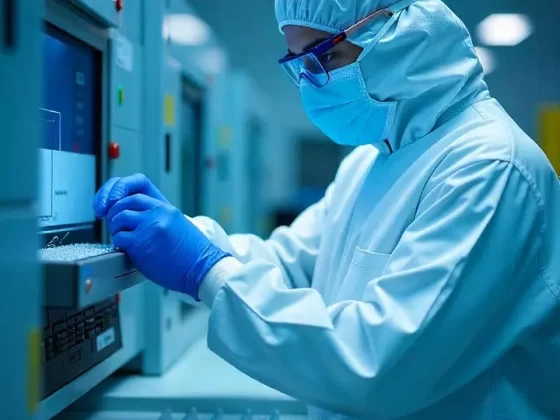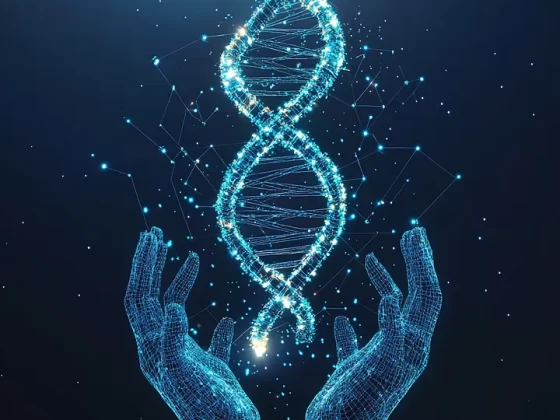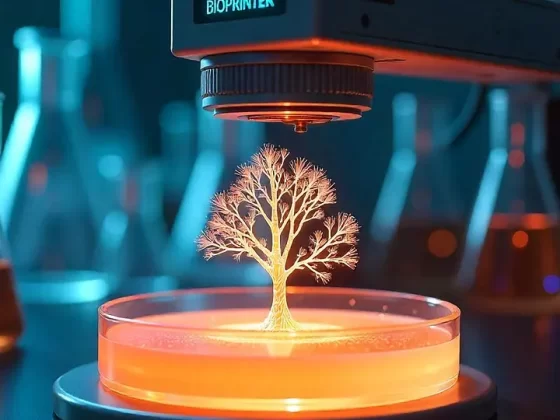A New Dawn in Cancer Care: Harnessing AI for Hope and Healing
“AI in cancer care: turning fear into hope, and hope into healing.”
By Roopak Pathak
Imagine a world where cancer can be detected before it has a chance to take hold. This is no longer a distant dream — Artificial Intelligence (AI) is making it possible. By analysing complex data from genomic sequencing, proteins, and other biological markers, AI can identify cancer in its earliest stages, often before symptoms appear. Non-invasive tests, like liquid biopsies powered by AI, are already showing remarkable promise. For instance, a groundbreaking study by GRAIL in 2020 demonstrated that liquid biopsies could detect over 50 types of cancer with an accuracy rate of 89% in early stages. These innovations have the potential to save millions of lives, sparing families the heartbreak of late-stage diagnoses. However, to make this vision a reality, we must ensure that AI technologies are seamlessly integrated into healthcare systems and made accessible to everyone, regardless of geography or financial situation. We are entering a transformative era in cancer care, where AI is reshaping how we diagnose, treat, and manage this devastating disease.
This changing technology is not just an advancement — it represents a profound shift in our fight against cancer. According to the World Health Organisation (WHO), cancer is the second leading cause of death globally, responsible for nearly 10 million deaths in 2020. AI offers a powerful ability to change this trajectory, bringing us closer to a future where cancer can be treated more effectively and, one day, even cured. Predictive models suggest that with widespread adoption of AI in early detection and treatment, global cancer mortality rates could drop by as much as 20% over the next decade. For millions of patients and their families, AI offers something invaluable: hope. AI is also transforming how we treat cancer. By analysing a patient’s unique genetic and molecular profile, AI can help doctors create highly personalised treatment plans. This approach, known as precision medicine, is already showing results.
For example, AI-driven platforms like IBM Watson for Oncology have been used to recommend treatment options with a 93% concordance rate with human oncologists. These tailored therapies are not only more effective but also gentler, reducing side effects and improving the quality of life for patients. Predictive analysis suggests that as AI becomes more integrated into treatment planning, survival rates for certain cancers, such as breast and lung cancer, could improve by 15–25% in the next five years.

However, it is critical that these advanced treatments are available to all, breaking down barriers of cost and accessibility so that no one is left behind in this new era of cancer care. In drug discovery, AI is accelerating the development of new treatments for patients who have exhausted existing options. Traditionally, developing a new drug takes 10–15 years and costs over $2.6 billion. AI is cutting this timeline significantly. For instance, the AI platform Benevolentai identified a potential drug candidate for breast cancer in just 12 months, a process that would have taken years using traditional methods.
Predictive models estimate that AI could reduce drug development costs by up to 40% and bring new therapies to market 50% faster. By identifying new drug targets and optimising drug design, AI is opening doors to therapies that were once unimaginable. This progress requires collaboration between AI researchers, oncologists, and pharmaceutical companies to ensure these breakthroughs reach the patients who need them most, as quickly as possible. AI is also revolutionising how we monitor and manage cancer treatment. Imagine wearable devices and smart systems that track a patient’s health in real time, providing doctors with instant updates on how treatments are working. These systems are already being implemented. For example, Tempus, an AI-powered platform, collects and analyses patient data to help oncologists make data-driven decisions. Such systems can detect changes early, allowing for timely adjustments and giving patients and their families peace of mind. A study published in Nature Medicine found that AI-based monitoring reduced hospital readmissions by 30% for cancer patients undergoing chemotherapy. Predictive analysis suggests that as these systems become more widespread, they could reduce treatment complications by up to 25% and improve overall patient outcomes significantly.
To fully embrace these technologies, we must educate both patients and healthcare providers, building trust and understanding around their use. It also has the potential to close healthcare gaps on a global scale. In low-resource settings, where access to advanced cancer care is limited, AI can provide affordable and effective solutions. For example, AI-powered diagnostic platforms like Pathai are being used to analyse pathology slides with accuracy comparable to expert pathologists, even in regions with limited medical infrastructure. Predictive models suggest that by 2030, AI could help reduce diagnostic delays in low-income countries by 50%, potentially saving hundreds of thousands of lives annually. By making these technologies accessible worldwide, we can prevent the growing divide between high- and low-income countries. At the same time, we must develop long-term strategies to manage the vast amounts of data generated by AI systems, ensuring its security and integrity over time. The future of cancer care is brighter than ever, with AI leading the way.
From early detection to personalised treatments, faster drug discovery, and real-time monitoring, AI is transforming every aspect of how we fight cancer. However, this future will only be possible if we work together, healthcare providers, researchers, policymakers, and communities, to ensure that these innovations are accessible, ethical, and equitable. AI is not just an ability; it is a beacon of hope for millions of patients and their families. It brings us closer to a world where cancer is no longer a life sentence but a challenge we can overcome. Predictive analysis suggests that with continued advancements in AI, we could see a 30% reduction in global cancer mortality rates by 2040. Together, we can turn this vision into reality, offering healing, hope, and a better quality of life to those who need it most.

